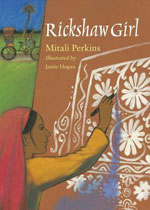At last week’s Festival of Faith and Writing I was pleasantly surprised that the conversation wasn’t limited to the Christian faith. I don’t know about the extent of the diversity, but I did hear from one Muslim writer and one Hindu writer.
Why is that important? Because, as Muslim comic book writer G. Willow Wilson said at the Festival of Faith and Writing, “If a belief system is worth anything it should offer value to those who don’t believe it.”
Our society is so polarized right now I think it’s more important than ever to hear from voices that are different from our own. It’s too easy to become overly homogenous and clueless of anything that’s different. It allows all sorts of negative things to blossom.
Nigerian writer Chimamanda Adichie talks about the danger of the single story in her 2009 TED talk, when we allow a single narrative to tell the entire story of something we don’t understand. It happens all the time when the continent of Africa is turned into a single country. It’s what we do to Islam when we assume all Muslims are conservative or even terrorists.
Wilson also said that she’d never been to a mosque that separated men and women until she came to the U.S. The most liberal mosque she’d ever been in was Iran.
“The problem with stereotypes is not that they are untrue, it is that they are incomplete,” Adichie said. It’s not that there aren’t conservative Muslims (and even extremist Muslims), but that’s only a tiny sliver of the truth. Just as the Westboro Baptist Church does not represent all of Christianity.
Swati Avasthi, a Hindu writer who spoke at the Festival of Faith and Writing, said that in order to disrupt this single story notion, we need to make it more complex. We need to explore the wider narratives and understand things more fully.
Two great examples are Boxers & Saints by Gene Luen Yang and Bamboo People by Mitali Perkins. Both stories explore deeply divided issues—the Boxer rebellion in 1900 China and persecuted refugees in Burma today, respectively—from two conflicting perspectives. The result is a more deeply nuanced narrative. It’s not a simple, one-sided story.
I think we need to pursue those multiple narratives, the more complicated threads that start to give us fuller picture, a more honest glimpse of the truth.
Don’t be content with a token bit of diversity. Don’t assume one story about Nigeria will tell you all you need to know. Don’t be so jaded as to think a single refugee story gives you insight into the experience of all refugees.
“Let’s tell stories that humanize, rather than demonize,” said Eliza Griswold, who has done a lot of work in Afghanistan and seen firsthand the result of our single narrative. She disrupts that narrative herself with this book of poetry by Afghan women.
 Salvage the Bones by Jesmyn Ward is a brutal novel:
Salvage the Bones by Jesmyn Ward is a brutal novel:



